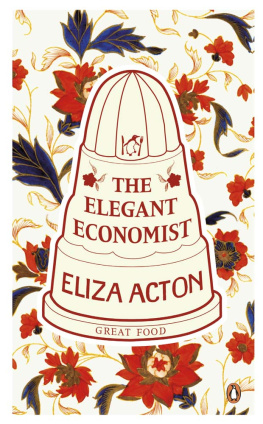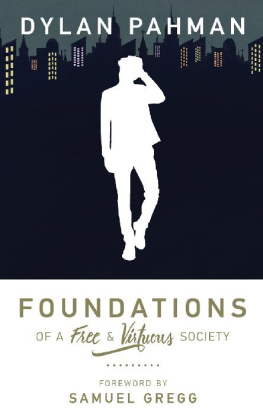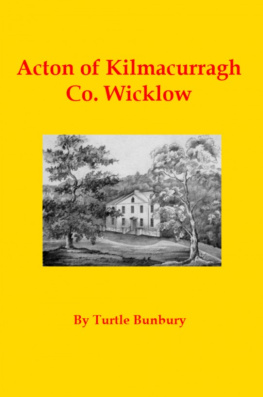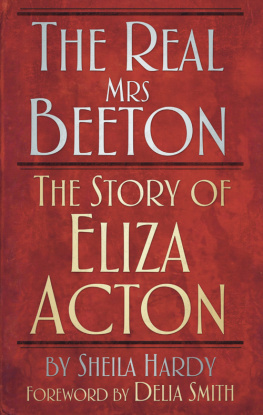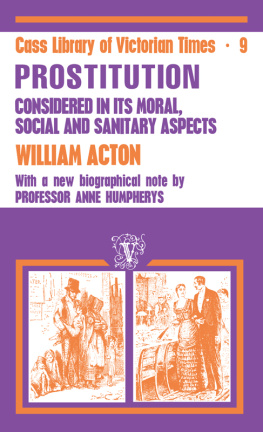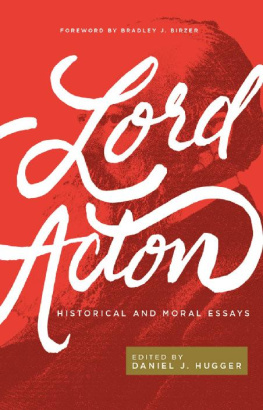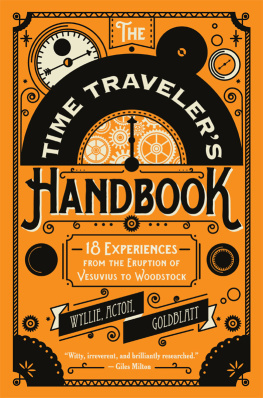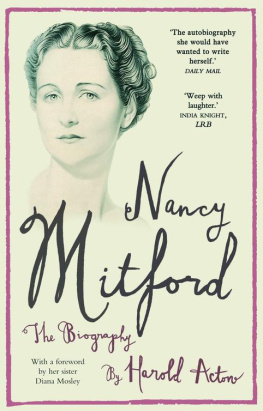Portrait of Lord Acton
Portrait of Lord Acton
LETTERS OF
LORD ACTON
TO MARY, DAUGHTER OF
THE RIGHT HON. W. E. GLADSTONE
EDITED, WITH AN INTRODUCTORY MEMOIR, BY
HERBERT PAUL
LONDON
GEORGE ALLEN, 156, CHARING CROSS ROAD
1904
[All rights reserved]
COPYRIGHT IN THE UNITED STATES OF AMERICA BY
THE MACMILLAN COMPANY, 1904
Printed by BALLANTYNE, HANSON & Co.
At the Ballantyne Press
"Through such souls alone
God stooping shows sufficient of His Light
For us i' the dark to rise by."
THIS VOLUME
IS DEDICATED TO
LADY ACTON
BY M. D.
CONTENTS
PAGE
DEDICATION..........................
PREFACE...........................
EDITOR'S PREFACE.......................
INTRODUCTORY MEMOIR.....................
LETTERS OF LORD ACTON....................
INDEX............................
ILLUSTRATIONS
PREFACE
It does not seem likely that any one, after reading these letters, would question the desirability of their publication. In general they speak for themselves; a few notes have been added to explain allusions which by lapse of time have become obscure; some names and passages, and some letters, have been omitted. After 1885 Lord Acton touched upon questions which are still matters of controversy, and therefore the selection closes with that year. The letters were written to the daughter who lived with Mr. Gladstone from the time of her own birth, in the middle of the last century, to the day of his death, at its close. The idea of publishing a selection of them arose in 1898; and Lord Acton, with certain reservations, assented to it. But it was felt by competent judges that it would be trespassing in Mr. Morley's domain; and Mr. Morley himself was strongly of opinion that the mutilation which at that period would have been necessary, would seriously impair the interest and the significance of the book. So, for the time, the project was abandoned. On the other hand, in the judgment of the eminent authorities to whom the letters were submitted, their value was of such a nature that it was evident they ought to be published as soon as Mr. Morley should have completed his task.
With the exception of passages critical of himself or his policy, the letters were not read by Mr. Gladstone; for, while he made it a rule to shun all that was laudatory of himself, he always welcomed and carefully studied anything deliberately thought out or written in an opposite sense. His own correspondence with Lord Acton extended over a period of some thirty years; but it does not cover nearly so wide a range of subjects, or appeal so much to general interests, as the series now printed.
To the recipient of these letters from Lord Acton they will always be precious, not merely for the judgments they contain and the memories they recall, but also as the outward symbol of an inward and priceless possessionthe treasure of his friendship.
MARY DREW.
10th January 1904.
EDITOR'S PREFACE
In compiling the Introductory Memoir which follows I have been chiefly indebted to Dr. Shaw's excellent "Bibliography of Lord Acton," edited for the Royal Historical Society, and to a most interesting article in the Edinburgh Review for April 1903. I have also consulted Mr. Bryce's "Studies in Contemporary Biography," Sir Mountstuart Grant Duff's "Out of the Past," and an obituary notice in the Cambridge Review for October 1902, signed "F.W.M." Mr. Morley was good enough to lend me the copies of Lord Acton's letters to Mr. Gladstone which had been made for the purposes of his Biography. Neither the materials at my command nor the circumstances of the case justified me in attempting to write a Life of Lord Acton. I have merely sought to furnish such information as the readers of these letters would naturally desire to possess.
HERBERT PAUL.
INTRODUCTORY MEMOIR
Lord Acton was dimly known to the general public as a prodigy of learning. He left no great work behind him, and is often quoted as an example of natural gifts buried under an accumulation of excessive, or ill-digested knowledge. The image of a Dryasdust, of a bookworm, of a walking Dictionary was excited by his name among those to whom he was a name, and nothing more. To those who had the privilege of his acquaintance he appeared almost the precise opposite of a picture too unlike the truth to be even a caricature. For Lord Acton was a thorough man of the world. An insatiable, systematic, and effective reader, he was anything but a recluse. No man had a keener zest for the society of his intellectual equals. No one took a stronger interest in the events of the day, and the gossip of the hour. His learning, though vast and genuine, was never obtruded. Always ready to impart information, he shrank from the semblance of volunteering it. Indeed, if no direct appeal were made to him, he would let people without a tithe of his knowledge lay down the law as if they knew everything, and would betray no other sign of amusement than an enigmatical smile. He had something of Addison's tendency, exhibited in a much more remarkable and much less agreeable form by Mr. Froude, to draw out rather than to repress the sallies of conceited ignorance. But for any one who wished to learn his resources were in their fullest extent available. To be in his company was like being in the best of historical libraries with the best of historical catalogues. A question produced not only a direct and complete answer, but also useful advice, about the books which the inquirer ought to consult. On matters of opinion he was much more reticent. Sometimes, without a moment's warning, he would utter a paradox which from any one else might have seemed the mere recklessness of sciolism, but which, coming from him, was treasured in the memory. I remember, for instance, his telling me that Rousseau had produced more effect with his pen than Aristotle, or Cicero, or Saint Augustine, or Saint Thomas Aquinas, or any other man who ever lived. But such sweeping assertions were few. His general attitude was one of rigid adhesion to certain facts, and careful avoidance of hasty judgments. It was not that Lord Acton had no strong opinions. Few people had stronger opinions than he, and their foundation was so solid that it was almost impossible to displace them. But he liked to hear all sides of every question, and to make allowance for all errors which did not involve a violation of the moral law. Any apology, or even excuse, for departure from the highway of the Decalogue he regarded as in itself a crime.
The force and originality of Lord Acton's conversation are reflected, and may be inferred, from his epistolary style. In absolutely uncongenial company he would maintain the silence of the tomb. But when there was any community of taste or subject, he shone equally as a talker and as a listener. It was not that he tried to shine. He did not aim at epigram, and his humour was as spontaneous as it was delightful. He loved to stimulate conversation in others, and no man had more sympathy with a good thing which he had not said himself. His manner was such that his compliments sometimes suggested a faint suspicion of insincerity. The suspicion, however, was unjust, and was merely the result of a subtle, half ironic manner. He was entirely free from jealousy, vanity, and egoism. A merciless intellectual critic he could hardly help being. He had so trained and furnished his mind that it rejected instinctively a sophism or a false pretence.



